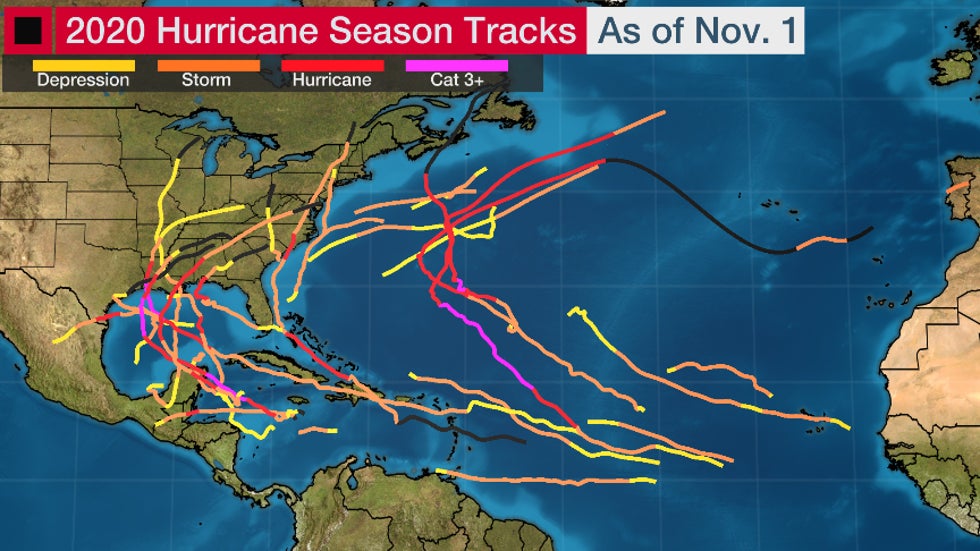Jonathan Erdman
The 2020 Atlantic hurricane season has tied a record for the most number of storms in a season following the formation of Eta this weekend.
Including Eta, we've seen 28 named storms so far this season.
Only the 2005 season – with 27 named storms and one unnamed storm – has had this many storms.
The 2020 hurricane season exhausted its entire list of names on Sept. 18, having to use the Greek alphabet for subsequent names for only the second time – the first being 2005.
We're already seven letters deep into the Greek alphabet. The deepest 2005 went into the Greek alphabet was Zeta (one unnamed storm was added after post-season analysis of the 2005 season, accounting for 2005 only going through Zeta, instead of Eta, in the names list).
(MORE: What Happens If a Hurricane With a Greek Alphabet Name Has to Be Retired?)
 Greek names used in 2020 Atlantic hurricane season through Eta.
Greek names used in 2020 Atlantic hurricane season through Eta.Contrasting this storm tally with an average season is even more stunning.
The average storm count for a full season is 13. So we've had two full average seasons' worth of storms in 2020, so far. And the season isn't over yet.
If the rest of the season is just average, we would expect at least one more named storm. That would take the season's tally to 29 storms, topping the 2005 record and taking us through Theta in the Greek alphabet.
 2020 Atlantic hurricane season tracks to-date as of Nov. 1.
2020 Atlantic hurricane season tracks to-date as of Nov. 1.Eta is also expected to become the 12th hurricane of the 2020 Atlantic season.
Only three other hurricane seasons on record have had 12 or more hurricanes, according to Dr. Phil Klotzbach, a tropical scientist at Colorado State University. The record most hurricanes in an Atlantic season is 15 set in 2005.
The Weather Company’s primary journalistic mission is to report on breaking weather news, the environment and the importance of science to our lives. This story does not necessarily represent the position of our parent company, IBM.
The Weather Company’s primary journalistic mission is to report on breaking weather news, the environment and the importance of science to our lives. This story does not necessarily represent the position of our parent company, IBM.

No comments:
Post a Comment